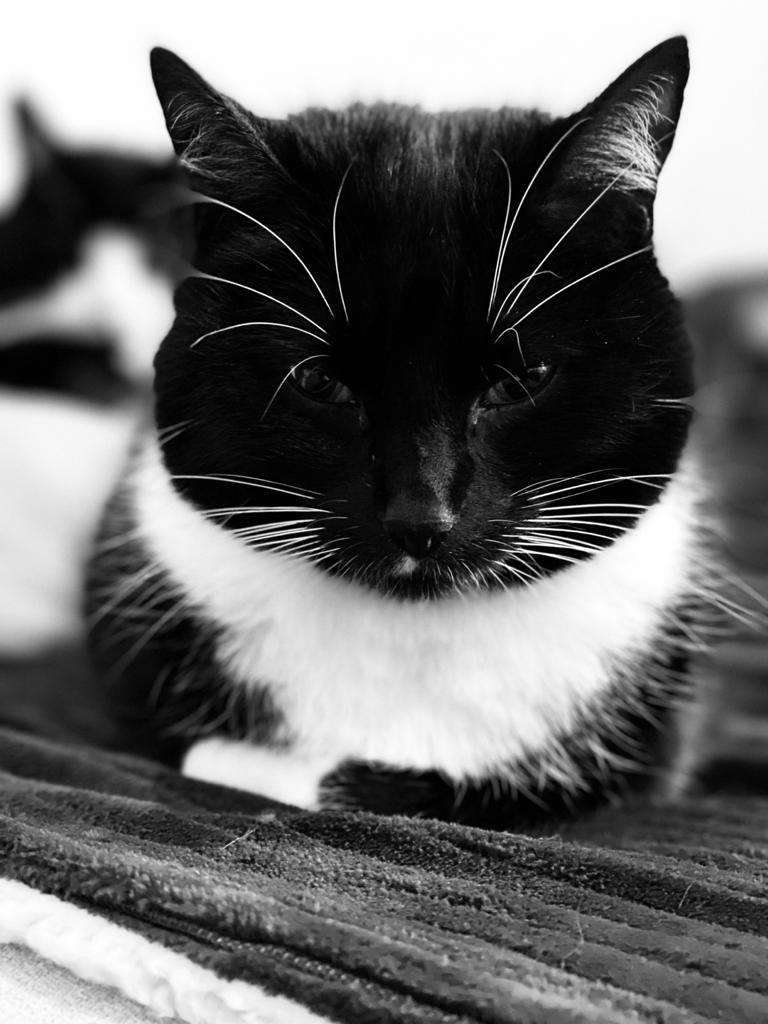Feline cystitis

We have recently seen an increase in incidence of cystitis in cats at the clinic, so I thought it might be helpful to put up an article on urinary issues in cats. The increase may be partly related to the cold weather stopping our feline friends going outside to urinate and then subsequently holding on to their urine too long so increasing litter trays in the house during the winter weather may help.
There are many different disorders involving the urinary tract (consisting of the kidneys, ureters, urinary bladder and urethra) but in this article I will be focussing on the lower urinary tract: specifically cystitis (inflammation of the bladder) and urethral obstruction.
Cystitis
Cystitis is the medical word for ‘inflammation of the bladder’ and it is often misinterpreted as a urinary tract infection (UTI). Although with a UTI you will likely have some inflammation of the bladder, we quite commonly see cystitis in cats without an infection.
Cystitis can also be caused by a urolith (stone within the bladder), trauma or most commonly in cats due to a condition known as feline idiopathic cystitis (FIC). Idiopathic by definition means ‘unknown cause’ and as frustrating as this sounds, there are ways to treat the symptoms of FIC and reduce the incidence. Reducing stress appears to be a major factor when treating FIC, and this can be done by altering the living environment to best suit the cat and using supplementary treatments as outlined below:
- Pheromone diffusers (eg. Feliway) can help to reduce stress in the environment by diffusing the synthetic form of the ‘happy’ pheromones produced from cats’ scent glands.
- Changing onto a Urinary diet which will create a more dilute urine and can help to reduce inflammation within the bladder and further reduce stress through supplementing L-tryptophan.
- Increasing water intake to further dilute the urine.
- Increasing the number of litter trays in the house (1 per cat + 1 extra should be the minimum). It is also important to consider the position of these litter trays, so they are not near the cats’ food/potentially stressful areas.
- Pain relief and other medications are sometimes considered if we cannot control FIC with environmental and dietary modifications alone.
Blocked bladder (urethral obstruction)
This condition is incredibly serious and can be fatal if not treated promptly. Male, overweight cats are most likely to be affected as they have a longer, narrower urethra. Often there will be subtle symptoms for a few days before the cat becomes completely blocked- this can start with licking of the penis, squatting or straining to urinate in strange places around the house. When they are blocked there will be similar signs but the straining will be unproductive, they can vocalise excessively, and this can sometimes progress to collapse.
We always recommend seeking veterinary advice if your cat is showing any of the signs above.
Urethral obstruction can be caused by:
- Urolith (stone) blocking urethra
- Urethral spasm
- Mucous plug
- Severe inflammation/trauma.
When a blocked cat is presented to us, we will run bloods as soon as possible so that we can assess the kidney values and electrolytes. We need to correct any electrolyte imbalances before we anaesthetise them to relieve the obstruction and so if required they will be on a drip before proceeding.
Once they are stable, we anaesthetise them to then relieve the obstruction and pass a urinary obstruction. Depending on the level of obstruction, this is either removed immediately or left indwelling for 3 days. We analyse the urine to determine the cause of the obstruction and then plan long term management, involving a urinary diet, increasing water intake, weight loss if required and any environmental changes to reduce stress. If treated quickly we find that in most cases they will make a full recovery from this condition.
If you are concerned that your cat may be suffering with lower urinary tract disease, or you want to discuss this article further, please do give us a ring at the Cape Veterinary Clinic on 01483 538990.
Catherine Hannah BVSc MRCVS. Ref: International Cat Care.